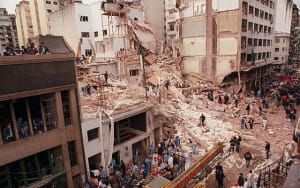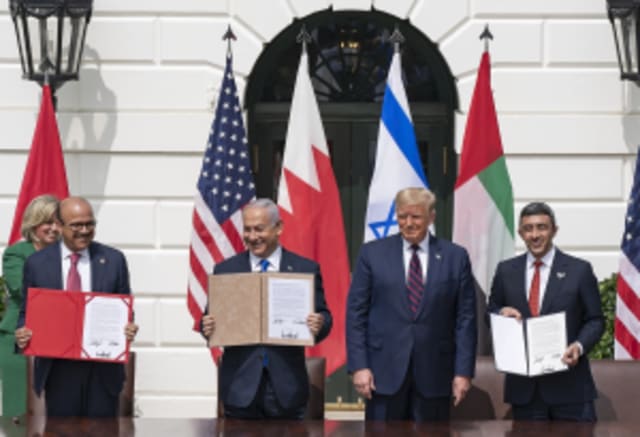Argentinian prosecutor wants arrest warrant for Iranian Ayatollah Khamenei over deadly 1994 bombing
85 people were murdered when terrorists detonated a bomb in Buenos Aires in 1994

An Argentinian prosecutor requested an international arrest warrant against Ali Khamenei, the Supreme Leader of Iran, for his direct involvement in the 1994 AMIA bombing, which was directed by Iran and carried out by Hezbollah.
Prosecutor Sebastián Basso, who succeeded the late Alberto Nisman in 2015, has requested that an Argentine federal judge summon Ayatollah Khamenei to testify regarding his alleged involvement in the July 18, 1994, attack on the AMIA headquarters, along with other Iranian suspects named in the report, according to the Argentine newspaper Clarín.
Khamenei “led the decision to carry out a bomb attack in Buenos Aires in July 1994 and issued executive order (fatwa) 39 to carry it out,” Basso wrote. The cleric succeeded the founder of the Islamic Republic of Iran, Ruhollah Khomeini, as Supreme Leader in 1989.
Five years later, 85 people were murdered and more than 300 injured when terrorists detonated a powerful bomb outside the local Jewish community center building in Buenos Aires.
An Argentinian court called the attack on the Asociación Mutual Israelita Argentina (AMIA) building a “crime against humanity.” To date, it remains the deadliest terror attack on Argentinian and South American soil.
Khamenei “sponsored an armed organization that operates clandestinely outside of Lebanese territory and is linked to the Hezbollah movement, which for decades has carried out numerous attacks on the lives and property of people that must be clarified as terrorist acts, including the AMIA attack,” Basso stated.
Thirty years later, in 2024, an Argentinian court ruled that the Islamic Republic of Iran was responsible for the AMIA attack, as well as another attack on the Israeli embassy in Buenos Aires two years earlier that killed 29 civilians and left over 240 people injured.
The Argentinian court consequently branded the Iranian regime a “terrorist state.”
Basso also requested trials in absentia for the other Iranian and Lebanese suspects in the case, including senior figures such as the late Iranian President Akbar Hashemi Rafsanjani, former Foreign Minister Ali Akbar Velayati, former Intelligence Minister Ali Fallahian, several top IRGC commanders, and Imad Mughniyeh, the Hezbollah operations chief who was assassinated in 2008, reportedly by Israeli forces.
The requests for arrest warrants were made possible by a law passed under President Javier Milei, allowing trials in absentia for serious crimes. Last year, Argentina also requested Interpol to extradite Iranian Interior Minister Ahmad Vahidi for his alleged role in the AMIA bombing.
Basso’s predecessor, Nisman, was found dead in 2015, the day before he was set to reveal incriminating evidence about a high-level cover-up of the Iranian connection to the bombing before a congressional inquiry.
Years later, a federal judge ruled that Nisman had been murdered.
Milei has blasted previous Argentine governments and the judiciary for “negligence, cover-up and manipulation of evidence” in the AMIA case, during a commemorative event by the World Jewish Congress and the Latin American Jewish Congress in 2024.
Milei has openly blamed the “fanatical government of Iran” for the AMIA attack. “The terrorism of that tragic Oct. 7 is exactly the same terrorism that attacked us 30 years ago,” he said.

The All Israel News Staff is a team of journalists in Israel.
You might also like to read this:

















